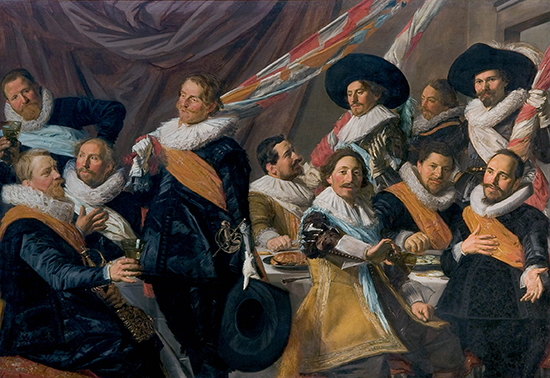The Geographers that Ate Themselves Instructor: Carl Olsson Date & Time: January 12th, 19th, 26th, February 2nd 14:00-16:30 ET

DESCRIPTION: This Seminar will examine the idea of losing oneself to space. Taking a cue from Roger Caillois’ speculations about a deep-rooted temptation of all beings to recede into a generic background, we will examine the allure that the environment poses for thought. The corollary of Caillois’ speculation is that space is a problem to manage, not only for humans but for animal life as such. The universal will of slipping back into the external world, of being assimilated into space, supposes a primordial separation from the environment that makes space intentionally manageable. Recent works in the philosophy of biology have found the vocabulary to talk about such management of space through a concept of autonomy that synthesizes spatial logics by way of physiological barriers, internalizations of vital functions and capacities for self-directed locomotion.
Putting Caillois’ embryonic theory to work, we will consider how the problem of space extends into the history of science and highlights the innate vulnerabilities of the Enlightenment project. With the help of neglected episodes from the history of geographical thought – a discipline whose duty is to cognitively manage space – we can recast the dialectic of Enlightenment alongside other biological failures to keep the external world at bay.
Session 1
The first session will introduce the topic and define our central terms, like “autonomy” and “space.” We will also discuss the contradictions between humanistic and naturalistic strands of the Enlightenment and what assuming the prerogatives of each strand could entail for thinking about space.
Readings: Roger Caillois, Mimicry and Legendary Psychasthenia; Bernd Rosslenbroich, On the Origin of Autonomy; Thomas Nagel, The View from Nowhere.
Session 2
The second session will follow geographical knowledge from its institutional foundations in the 18th century to its naturalistic conclusion at the end of the 1990s, under philosophies like ‘non-representational theory,’ ‘relational space,’ and ‘materialist return.’ We will see how the reactivation of space goes hand in hand with a deactivation of subjectivity, echoing the tensions between humanism and naturalism manifest in 20th-century sciences.
Readings: Immanuel Kant, Physical Geography; Sarah Whatmore, Materialist Returns; Paul Simpson, Spacing the Subject.
Session 3
The third session will recast the problem of space as a misadventure of transcendental subjectivity. We will follow Jay Rosenberg’s suggestion that it is a subtle manifestation of the ‘naturalistic fallacy’, a reduction from normative to descriptive talk. Rosenberg’s equation provides a pathway to naturalizing geography’s deactivation of subjectivity.
Readings: Jay Rosenberg, The Thinking Self; Robert Pippin, Kant on the Spontaneity of Mind.
Session 4
Returning to our biological starting point, the final session will be a tentative search for a structural parallel to the naturalistic fallacy in animal behavior. We will examine how the judgments of geographical knowledge are structural recapitulations of ingestion, posed as a self-abjuration in the image of a mouth that eats itself up.
Readings: Charles Perrault, Little Red Riding Hood; Géza Róheim, “Fairy Tale and Dream”; René Thom, Structural Stability and Morphogenesis.
IMAGE: Frans Pietersz de Grebber, The Banquet of the St Adrian Militia Company in 1610, 1610.
To see The New Centre Refund Policy CLICK HERE.
To see The New Centre Refund Policy CLICK HERE.